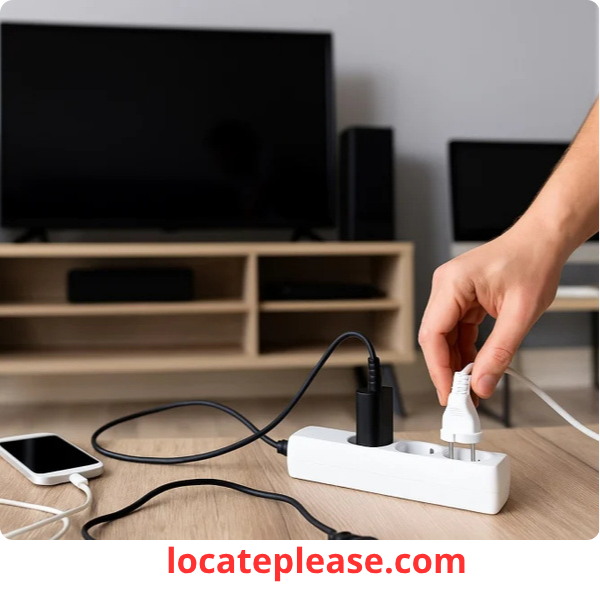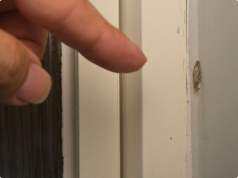It’s easy to overlook the small red lights glowing on your TV, microwave, or phone charger. They seem harmless — just a tiny standby light, right?
But here’s the truth:
Even when turned “off,” many of your household devices are still awake, sipping electricity — a phenomenon known as “phantom power” or “vampire energy.”
Not only does this waste energy and inflate your electricity bill, but it can also increase the risk of fire, electrical surges, and appliance damage — especially during storms or power fluctuations.
The solution?
👉 Unplug what you’re not using.
It’s a simple act — but one that brings big rewards: lower bills, longer-lasting electronics, and a safer home.
1. Electronic Devices with Power Supplies: The Silent Energy Eaters
Devices like TVs, computers, speakers, set-top boxes, phone chargers, and power banks may appear off — but they’re still drawing power in standby mode.
- A TV on standby can use 1–3 watts per hour.
- A laptop charger left plugged in continues to consume energy — even without the laptop attached.
- Over a year, these “energy vampires” can add hundreds of kilowatt-hours to your bill.
💡 The hidden cost:
The U.S. Department of Energy estimates that phantom loads account for 5–10% of residential electricity use — that’s $100–$200 a year wasted for the average household.
And there’s a safety risk too:
During thunderstorms or voltage spikes, power surges can travel through electrical lines, frying sensitive electronics — even if they’re “off.” A single lightning strike can destroy a $2,000 smart TV or computer.
✅ Smart Tip:
Use a power strip with a master switch to cut power to multiple devices at once — like your entertainment center or home office — with one flick.
2. Kitchen Appliances with Standby Modes: Convenience at a Cost
Your microwave, rice cooker, air fryer, or electric kettle may seem harmless when not in use — but if it has a digital clock or touch panel, it’s still consuming electricity 24/7.
And more than that — these are heat-generating appliances. If a relay malfunctions or moisture builds up, they can overheat, short-circuit, or even catch fire — especially in humid or unstable power environments.
🔥 The scary truth:
According to fire departments worldwide, hundreds of house fires each year are caused by kitchen appliances left plugged in unnecessarily.
✅ What to do:
- Unplug after every use — make it part of your routine.
- If you’re going on vacation, unplug all non-essential kitchen devices — don’t leave behind a ticking “time bomb.”
3. Washing Machines & Dishwashers: Hidden Power Drainers
Many people assume these appliances only use power when running. But smart models with Wi-Fi, digital displays, or delayed start functions stay in standby mode, silently consuming energy.
Even worse:
Moisture from previous cycles can linger, leading to:
- Damp internal components
- Electrical leakage
- Mold and corrosion
This not only wastes electricity but shortens the lifespan of your machine.
✅ Pro Tip:
If you’re going on an extended trip, unplug your washer and dishwasher. It saves energy and protects your investment.
4. Network Devices & Security Cameras: To Unplug or Not?
In our connected world, Wi-Fi routers, security cameras, and smart hubs often run 24/7 — and for good reason. They keep your home monitored and accessible.
But if you’re going on a long trip with no need for remote access, consider:
- Turning off your Wi-Fi router
- Unplugging non-essential smart devices
Why?
- Reduces overheating risk from continuous use
- Saves energy
- Lowers vulnerability to cyberattacks or power surges
⚠️ Important:
If you have a fire alarm, medical alert system, or essential security system, keep the core devices powered. Prioritize safety over savings.
Devices You Should Not Unplug
While unplugging is wise for many devices, some should stay connected — at least under normal circumstances:
1. Refrigerator
- Only unplug if you’re going away for more than a week.
- If you do, clean it, remove all food, and leave the door slightly ajar to prevent mold and odors.
2. Air Purifiers & Dehumidifiers
- Keep running if you have asthma, allergies, or high humidity.
- Essential for homes with infants, elderly, or pets.
3. Medical Equipment
- Devices like CPAP machines, oxygen concentrators, or refrigerated medication must stay powered.
Conclusion: Small Action, Big Benefits
Unplugging unused devices may seem like a small, outdated habit in our “always-on” world. But in reality, it’s one of the smartest, most modern things you can do for your home.
This simple routine can:
- Save you $100+ per year on electricity
- Extend the life of your appliances
- Reduce fire and surge risks
- Lower your carbon footprint
✅ Make it a habit:
Before leaving the house or going to bed, take 30 seconds to check:
- Are the kitchen appliances unplugged?
- Is the entertainment center switched off at the strip?
- Are chargers and gadgets disconnected?
A minute of proactive care today can prevent costly damage, stress, and danger tomorrow.
Unplug. Stay safe. Save money. It’s that simple.






